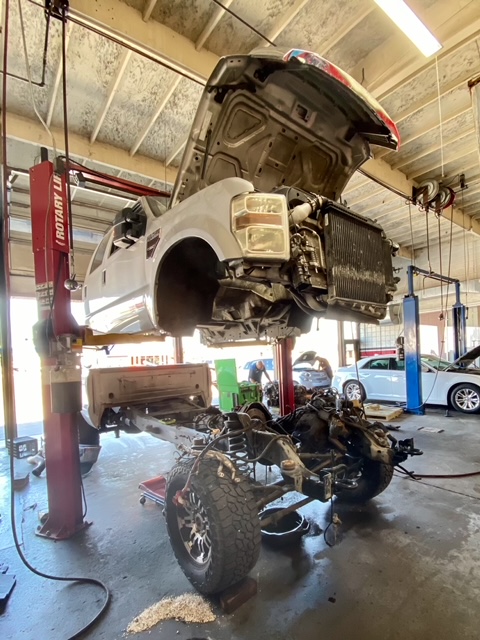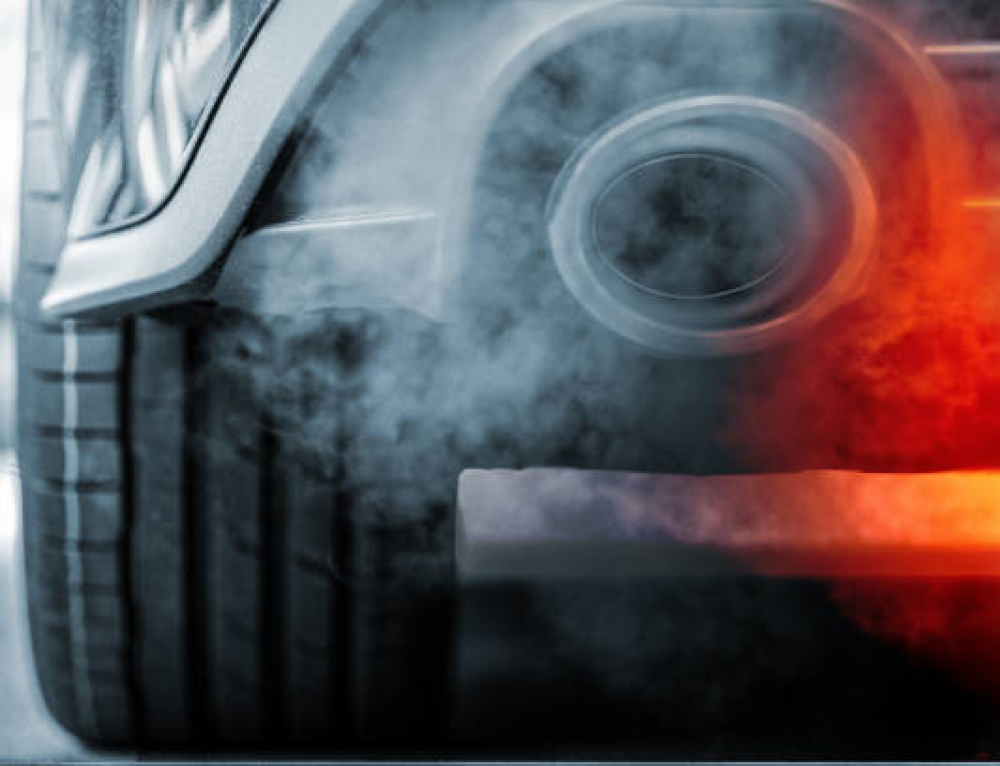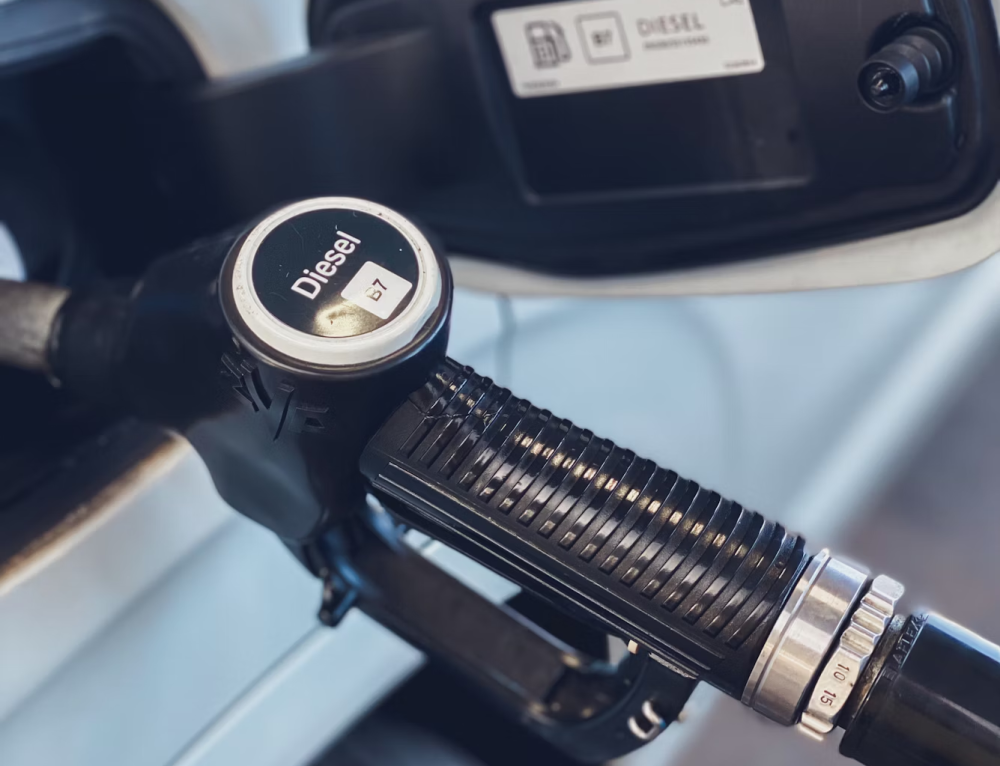Driving your vehicle smoothly from one place to another is what we all want. Just like the human heart, your vehicle’s diesel engines control your vehicle’s movement. However, common diesel engine problems can arise, affecting its performance or even causing it to stop working.
This can be frustrating when you’re unsure of what’s causing the issue. Ignoring common diesel engine problems can make them worse and more costly to fix. If you can figure out what caused the issue, then you can take action. But for complex cases, it’s better to call a diesel mechanic.
Regular diesel engine maintenance keeps your vehicle running smoothly. In this article, we’ll show you some common diesel engine problems, how to diagnose them, and how to fix them. We’ll also tell you how to prevent these problems from happening.
Let’s drive through!
Diesel Engine Problems: Diagnosis, Solutions, and Preventative Measures
Diesel engine problems can ruin your good mood and, if ignored, can cause your engine to break down. Our engineers have listed common diesel engine problems, their diagnosis, solutions, and preventative measures to help you maintain your good mood.
1. Diesel Engine misfire
Your diesel engine can misfire when one or more cylinders in the diesel engine fail to ignite properly. This is one of the common diesel engine problems that causes your diesel engine to run rough or sluggish and can sometimes lose power.
Causes
These are what can cause your diesel engine to misfire:
- Faulty spark plugs.
- Ignition system issues.
- Fuel system problems.
- Clogged fuel injectors.
Diagnoses
Let’s show you what to look out for if your diesel engine misfires.
- Check for worn-out spark plugs and damaged wires.
- Check for damaged ignition coils.
- Check your fuel pressure and flow rate.
- Inspect your fuel injectors for clogs or damage
Solution
Here are possible solutions if your diesel engine misfires:
- Replace your worn-out spark plugs.
- Changing your ignition coils can help restore your diesel engine’s performance.
- Cleaning or replacing your fuel injectors can help in solving the problem
- Changing or cleaning your faulty fuel pump can restore proper fuel flow and improve your diesel engine performance.
Preventative measures
Here are some ways to prevent diesel engine misfires and keep it running at its best.
- Conducting regular maintenance such as oil changes, air filter replacements, and fuel system cleanings.
- Ensure you use only high-quality fuel.
- Replace your spark plugs at regular intervals (usually every 30,000 miles).
- Replacing your ignition coil at the first sign of failure can help prevent further damage to the diesel engine.
It’s best to contact a mechanic to conduct routine maintenance on your diesel engine to keep it operational when needed.
2. Overheating
Overheating can reduce your diesel engine’s performance, fuel efficiency, and increase emissions. Common diesel engine problems like overheating can stem from several causes. Let’s show you its causes, diagnosis, solution, and preventative measures.
Causes
Here are some of the causes of overheating.
- Low or leaking coolant
- Faulty thermostat and water pump
- Clogged or blocked radiator
- Faulty radiator fan
Diagnosis
These are what to look out for if your diesel engine overheats:
- Check your coolant level or for loss of coolant
- Inspect your thermostat for faults
- Check your water pump for damage
- Check your radiator fan for faults
Solution
Now here’s what you can do if your diesel engine overheats:
- You can turn off your vehicle and let the diesel engine cool down.
- Check and add coolant if it’s low.
- If your radiator, water pump, or hoses are leaking, try replacing them or call a mechanic.
- If your thermostat is faulty, replace it.
- Ensure that your radiator fan is functioning properly.
Have a professional mechanic diagnose and repair any underlying issues causing the overheating
Preventative measures
To prevent overheating, do this:
- Regularly check and maintain your coolant level and quality.
- Flush and refill your cooling system as instructed by the manufacturer
- If your thermostat, hoses, belts, and water pump are worn out, replace them as recommended by the manufacturer.
- Check your radiator and keep it clean and clear of debris.
It is important to monitor your diesel engine’s temperature and contact a professional mechanic to prevent your diesel engine from failing.
3. Rough Idling
Rough idling is that noticeable roughness or a lumpy idle that causes your vehicle to shake or vibrate. It can also cause your diesel engine to stall or hesitate when accelerating from a stop, often linked to common diesel engine problems that require attention.
Causes
These are some causes of rough idling:
- Vacuum leaks
- Dirty air filter
- Faulty idle air control valve
- Low fuel pressure
Diagnosis
We’ve listed some things you should look out for here:
- Check for leakages in your vacuum system
- Inspect your air filters for dirt
- Check your idle air control valve for faults
- Check if your fuel pressure is low
Solution
Here’s what you can do:
- If there’s a leakage in your vacuum system contact a mechanic to fix or replace it.
- If there is dirt in your air filters, ensure you remove them.
- Replace your idle control valves if they are faulty.
- Replace your fuel pressure regulator if they are faulty
Preventative measures
There are many ways to prevent this, some of them are:
- Contact a mechanic to perform routine checks on your diesel engine’s vacuum system.
- Cleaning your air filters regularly to prevent clogging.
- Replace your idle air control valves when necessary.
- Ensure you use only high-quality fuel.
4. Electrical fault
If your diesel engine fails to start or runs poorly, it could be due to common diesel engine problems. One such issue is an electrical fault, which would require you to contact a professional mechanic as electrical faults are dangerous.
Causes
There are many reasons for electrical faults in your diesel engine. We’ve listed some of them for you.
- Dead battery
- Faulty alternators
- Damaged electrical wire or blown fuse
- Bad spark plugs and spark plug wires
Diagnosis
Here’s what you should look out for:
- Check if your battery power has depleted
- Inspect your alternator for fault
- Look for damaged wires or blown fuse
- Check for faulty spark plugs or damaged spark plug wires
Solution
Here’s what you can do:
- If your vehicle battery is depleted, you can revive it by jump-starting or recharging it.
- Change your alternator if it is faulty.
- If you see a blown fuse or faulty spark plugs, try replacing them.
- For damaged spark plug wires it’s best to contact a professional to avoid getting electrocuted.
Preventative measures
Electric faults can occur occasionally. Here’s what you can do to prevent some of these issues:
- If your battery has reached the end of its lifecycle, it’s wise to change it immediately.
- When conducting routine maintenance, check your alternator, fuse, and spark plugs. Try replacing them when necessary.
- Take your vehicle to the mechanic for regular maintenance. They’d notice when there’s a loose or faulty wire and fix it immediately.
A Word From an Diesel Engine Specialist
Diesel engine problems can escalate if they are not fixed immediately. If you notice an unusual sound or problem from your diesel engine, turn it off instantly to prevent escalation. Common diesel engine problems like fuel contamination or injector issues can often worsen over time. Check if it’s something you can fix, else call a mechanic quickly.
If you reside in Arizona, Phoenix Diesel Repair is the best choice for you. We have maintained our top-notch quality services in diesel engine repairs for 25 years. Our goal has always been to exceed our customer’s expectations. We are quick, professional, and pocket-friendly. Let’s keep your diesel engine running smoothly in no time. Reach out to us.
Frequently Asked Questions
How do I diagnose common diesel engine problems?
To diagnose common diesel engine problems, you should check for signs such as rough running, overheating, poor acceleration, and electrical issues. For example, a misfire could be due to faulty spark plugs, while overheating might stem from low coolant or a malfunctioning thermostat.
What causes common diesel engine problems like misfires?
Common causes of diesel engine misfires include faulty spark plugs, fuel system problems, clogged injectors, and ignition system issues. Identifying the cause can help you resolve the issue effectively.
How can I prevent common diesel engine problems?
To prevent common diesel engine problems, ensure regular maintenance such as oil changes, replacing air filters, checking fuel injectors, and inspecting cooling systems. Using high-quality fuel and addressing issues early can also minimize the risk of major problems.
Are electrical faults considered common diesel engine problems?
Yes, electrical faults, such as a dead battery, faulty alternators, or damaged spark plug wires, are considered common diesel engine problems. Regular checks of the electrical system can help prevent these issues from affecting your engine’s performance.
What are the common signs of overheating in diesel engines?
Common signs of overheating in diesel engines include temperature gauge spikes, loss of coolant, and visible steam. If your engine overheats, it may be caused by issues like a malfunctioning thermostat, blocked radiator, or leaking coolant.





